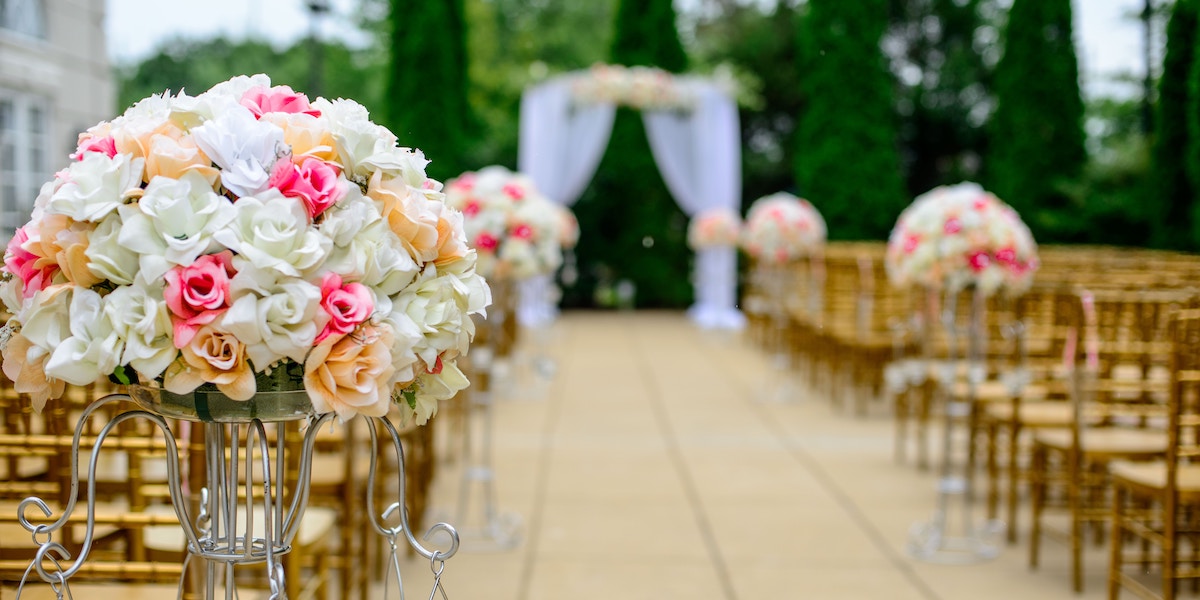READ ON TO DISCOVER:
- The key questions that will transform your next get-together
- The negative effects of society turning away from religion
- The case for letting men attend baby showers
Priya Parker is the founder of Thrive Labs, at which she helps activists, elected officials, corporate executives, educators, and philanthropists, create transformative gatherings. She is also the author of a 2018 Next Big Idea Club Finalist, The Art of Gathering: How We Meet and Why It Matters. Priya recently sat down with Next Big Idea Club founder Rufus Griscom to discuss how anyone can host a gathering to remember.
This conversation has been edited and condensed. Listen to the full version on the Next Big Idea Club podcast.
Rufus: It would be easy to pick up The Art of Gathering and mistake it for a relatively light tactical guide to throwing better dinner parties. But this really is a big idea book. Why does how we gather matter so much?
Priya: I define “gatherings” as any time three or more people come together for a purpose, and we are gathering all of the time. Work meetings, school meetings, town halls, birthday parties, family reunions, board meetings, all-hands-on-deck meetings. Many of us are with other people more than we’re not.
And for decades, we’ve been told to focus on the wrong things to make gatherings meaningful and memorable. The majority of books about gatherings are written by experts about stuff or things. Like cookbooks—“To be a great gatherer, you need to be a great chef!” That’s not true. “To be a great gatherer, you need to know about lighting!” That’s not true. Florists and etiquette experts [also chime in].
But I am a conflict resolution facilitator. My core training was focused on, how do you get a group of people to meaningfully connect across difference? And how do you create meaningful experiences for people that change either themselves, their perceptions of one another, or their perceptions of what’s possible in the world? I wanted to bring that lens to gathering. And the category that we’ve placed gatherings in is deeply problematic, and is perpetuating a time of anxiety and isolation and fracture. I wanted to change that.
Rufus: I think we’ve all had experiences with boring gatherings, right? The school functions that you force yourself to go to, cocktail parties with endless small talk that you suffer through. But I believe that our interactions with other humans are the single most important thing that we do, so thinking more deeply about how to architect those interactions could not be more important.
Priya: We tend to gather on autopilot, so there is a specific form in our head of what gathering looks like. Like schools’ Back to School Night—we imagine parents scrunched up in these little wooden desks. Or a wedding—we imagine a woman just walking down an aisle. Or a birthday party, with birthday cake and birthday candles.
But the problem with skipping directly to form is that we don’t pause to ask, what is the purpose of this gathering? What is the need in my community, or in this life? Why am I hosting a wedding? Is it to unite the tribe? To honor my parents? Or is it to bring together people who may never again come together in this way, and give them a stake in our marriage? Those are very different answers of what a wedding should look like, but because we tend to go on autopilot, we follow specific roles that may or may not make sense.
Rufus: When it comes to cooking, they say that if you have really fresh, great ingredients, nothing else matters. And similarly, when we think about our gatherings, our default assumption is that if we have the right people in the room, that’s all that matters—it will just take care of itself.
Priya: That’s certainly true sometimes, perhaps with a group of friends who have a really great dynamic. But as a conflict resolution facilitator, I learned a long time ago that bringing people together and just leaving them be does not necessarily create the conditions for people to take meaningful risks. Certain power dynamics might take over—at a volunteer training, one person may ask all of questions and take over the meeting.
There are also meetings where no one actually says what they think, and dinner parties where everybody is texting under the table. Maybe the chemistry will take care of itself, but one thing that I’ve learned in my craft is that 90 percent of the success of a gathering happens before anyone even walks in the door.
Rufus: We might have more of a problem today than we’ve had in the past, partly due to the erosion of religious and cultural traditions, right? Everybody used to go to weekly religious rituals, and it strikes me that there used to be more well-thought-out structure around interactions than there is today.
Priya: I think that’s the case. Our trust in institutions is declining, and these institutions—whether they’re religious institutions or workplaces—used to be the main source of meaning-making. You’d go to a church or synagogue or temple, and the head, whether it was a rabbi or a priest, was trained in how to create meaning, both within a community and as related to a text. And as those institutions are breaking down, we are more and more reliant on one another to create meaning, for better or worse. Meaning-making is becoming democratized, yet we haven’t been trained like shamans or priests, or even educators and teachers are trained to hold a group, to make meaning in a group, to help a group feel safe enough to learn or to say something unpopular. So we’re bumbling around, and we no longer have the rites or rituals that used to exist when we were more monolithic communities.
“We don’t pause to ask, what is the purpose of this gathering?”
Rufus: Well, that is a perfect segue way to your baby shower, which turned out differently from what you thought going in, right?
Priya: I was pregnant, and a couple of friends of mine offered to host a baby shower. I said yes—I felt so honored and loved that they would throw something for me. They started planning away, and they knew that I would want to do a meaningful ritual of some kind. But a few weeks in, my husband said to me, “So, when’s the baby shower? When should I show up?” And I said, “No no no, it’s not for you—it’s for me.” And he said, “Well, why? Aren’t we both going to parent? Don’t I also need a transition ritual?” I paused and thought about it, and I realized that he was right.
I started digging into the history of baby showers, and different cultures have different beliefs. But in this form, it’s a pretty American tradition, giving gifts to help the couple defray costs. It comes from a historical moment when it was assumed that the mother would do the majority of the parenting.
Long story short, I didn’t have a good answer for him. I ended up going through with my baby shower, and he actually did not come, but he had a Father’s Weekend, and brought the men in his life together to mark that moment.
Still, reflecting on it, I don’t know if either of those gatherings were what we needed. I’m not saying we didn’t enjoy them—but the deepest invitation of this book and this idea is to really ask, what is the need in my life right now that, by bringing a specific group of people together, we might be able to address? And for my husband and me, I think one of our deepest needs was to address, what does it mean [to parent] in an era when we don’t have a model for equal parenting? What would it look like to bring our people together, not only to help us think through where the inequality happens, but also as a collective public act to say, “This is really important to us, so hold us accountable.”
“Our rituals, if you continue to do them on autopilot, are actually perpetuating older ways of being that we don’t want anymore.”
And instead, my ritual was perpetuating the core assumption that it’s the women that need wisdom and support, that this is a transition for just one partner. If our desire is to learn how to parent equally, so that you can both play a full role at home and in the public square, we actually need to invent this together. So our rituals, if you continue to do them on autopilot, are actually perpetuating older ways of being that we don’t want anymore.
Rufus: Yeah, it not only fails to solve the new problem, but it also reinforces the old set of behaviors that we’re trying to modify.
You were inspired by the recent royal wedding. Do you want to talk a little bit about that?
Priya: I think like one billion people around the world tuned in to watch the royal wedding, and I was really moved. Here we all were watching this gathering, this ritual, that has been publicly witnessed for centuries, which means a couple of things. One, it’s a ritual that not only the people involved, but also the people witnessing all feel an emotional attachment to. When people feel an emotional attachment to ritual, it’s hard to change it. But what the couple did was ask this question that we all have to ask: “What do we keep, and what needs to go?”
In this case, Prince Harry is not marrying a British woman. He’s marrying somebody who is of mixed race, and somebody who is not from royalty. There are so many ways in which he is splitting from tradition, so how do you create a ritual that [promotes] relative equality, where there is space for both of them?
So, they invited a black minister. They had a gospel choir. This is pretty radical stuff in the context of a royal wedding—and the transgressive acts were not limited to her dress or her headpiece. There was actual change within the sequence of a ritual, while still preserving certain elements of the ritual so that those who had a specific idea of what a royal wedding is could still recognize it. That is a difficult dance, so I was very moved by what the royal family invented to both honor tradition and also make space for someone who is different from them.



























